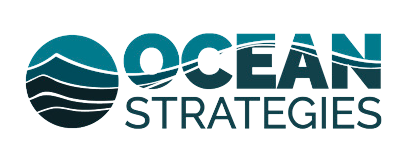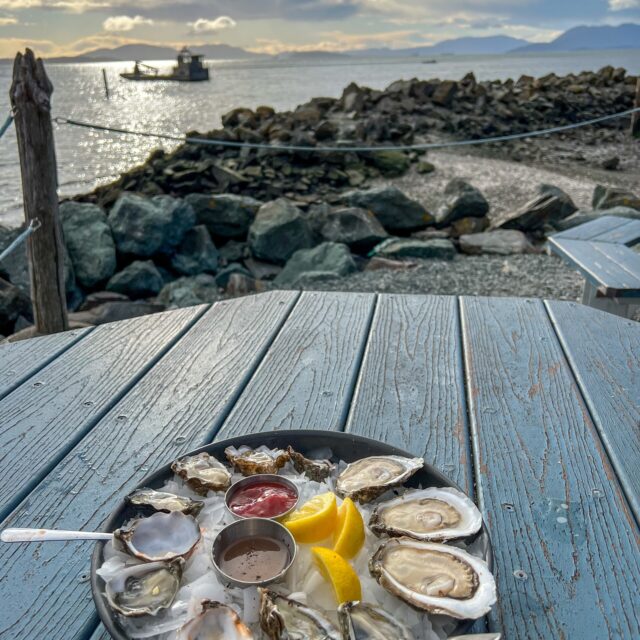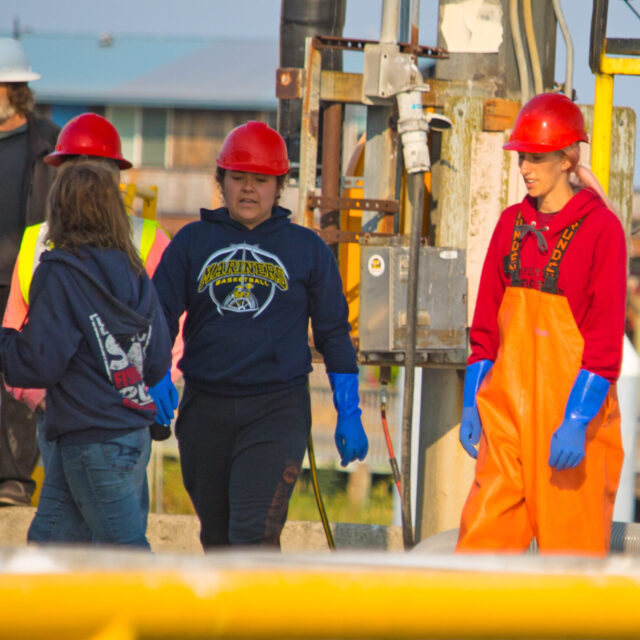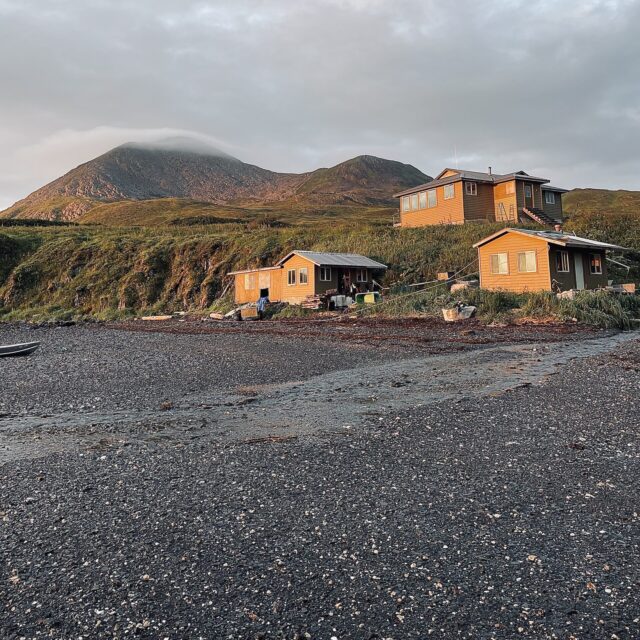Q & A with Monique Coombs
Ocean Strategies Senior Consultant, Hannah Heimbuch, recently chatted with Monique Coombs with the Maine Coast Fishermen’s Association about health and wellness in U.S. fisheries — the challenges, the solutions, and the work she’s doing to bring mental health to the forefront of this conversation.
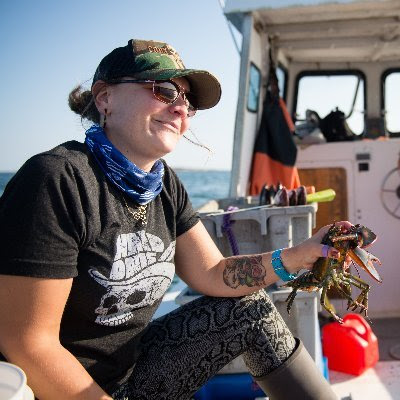
Monique Coombs is the Director of Community Programs for the Maine Coast Fishermen’s Association, where she oversees the organization’s marine programs and fishing community engagement. She has been married to a fisherman for almost twenty years and has two kids, both of whom have their student lobster licenses. She and her family live on Orrs Island, Maine.
You can learn more about Monique and her work in fisheries at her website: aragostamama.com
Ocean Strategies thanks the Maine Coast Fishermen’s Association for featuring our interview with Monique in their recent blog: Ocean Strategies Q&A w. MCFA’s Monique Coombs. Be sure to check out MCFA’s website to learn about the work they are doing to keep Gulf of Maine fisheries sustainable, preserve fishery access, and innovate and diversify fishing businesses.
Hannah: Thanks so much for joining us, Monique! We’re excited to dive into some important topics, but first things first – what is your favorite seafood, and how do you cook it?
Monique: I’m going to have to go with my OG – lobster. My favorite way to prepare it is to steam it. It’s a classic. I love when my kids are fishing in the summer and bring home pieces so I always have a pot of lobster in the fridge. You really can’t get any better than that. It’s such a good snack, high in protein, and delicious.
Hannah: Americans are eating more seafood than ever before. We’ve talked quite a bit about what keeps seafood resources strong and sustainable, so we can continue to supply America with healthy protein options. While we often focus on the ocean ecosystem, part of that story is a healthy, thriving workforce at every part of the supply chain. In the grocery store, along transportation routes, in processing and of course — out fishing. You and the Maine Coast Fishermen’s Association have put a focus on health and wellness for fishermen and their families over the past few years. Let’s talk about why and how you do that, and how those efforts support a strong seafood future.
What have you found are some of the leading health and wellness issues that fishermen struggle with — as individuals, as families, and as communities?
Monique: First of all, physical health. I’ve learned a new term in the past year: industrial athlete. This refers to when your occupation requires an element of both physical and mental health in order to carry out your work. Physical health issues could be overuse injuries like low back pain, or sprains, tears, and wounds. I think having terminology like “industrial athlete” helps because it’s easier to identify solutions. If you talk to fishermen like they’re athletes, then the importance of sleeping and eating well in order to fish harder will resonate.
Another term is “moral injury.” This was first used to describe soldiers that had done things during war time that went against their values but was part of their job. That’s actually pretty common in the fishing industry, too. When you’re just trying to go fishing and be on the water, and then you’re required to do things —- like modifications around bycatch or you’re feeling over-regulated, these are things that may go against your values. That leads to a sense of powerlessness. Moral injury can even lead to depression and anxiety.
As individuals, fishermen should be included in health and wellness conversations in a humanizing way because fishing is so intrinsically tied to a fisherman’s identity. Anything that impacts their business is going to impact them personally.
In communities, one issue is solastalgia, a term coined by the philosopher Glenn Albrecht in 2008. It refers to the feeling of homesickness when you’re already at home. A lot of development in our coastal communities, like here in Maine, exploded during the pandemic. Most houses are going 10 to 15 percent over asking price. So this community development is changing in such a way that is inflicting homesickness, grief and sadness, despite these fishermen being in the same place they always have been.
Hannah: What tools have you found to help meet those challenges? What successes have you seen?
Monique: Advocating for more mental health resources for fishermen is about increasing awareness and decreasing stigma. We’re pretty proud of this at MCFA. It shouldn’t be new territory to talk about mental health and commercial fishing. But it’s not at the same place as, say, agriculture. If you Google “farmers and mental health” there’s a ton of resources. It’s not the same for fisheries.
What we’ve found in developing our mental health program is that we’re having to simultaneously develop the resource while doing the outreach. We’ve made some specific tools. For example, in the fishing industry there’s a lot of men, so it was helpful to develop a mental health resource specifically for them. There’s a website called mantherapy.org. It’s a unique tool in terms of how to communicate mental health to a group that’s primarily men.
We’ve also made fishermen wellness blog posts, and cultural competency courses. We’re working to provide counselors with the information necessary so fishermen can feel comfortable walking into a room with them and not have to describe the complexity of commercial fishing. Fishermen will know that counselors understand this is an occupation that is tied to a person’s identity, and “don’t go fishing” is not a solution.
The potential to influence policy down the road has also come up. It says in the Magnuson-Stevens Act that social aspects are supposed to be taken into consideration. That’s a good place to start with some of this. Maybe when it’s more deeply recognized as an issue, we could potentially influence policy in that direction. Maybe it’s through policy that we allot funding or appropriations in the same way that USDA does for substance use disorders and suicide prevention.
There’s an assumption when we’re talking about mental health and fishermen that we’re talking about substance use disorders. There’s a hesitancy from regulators, managers and industry to talk about things like opioid use. We haven’t quite figured out how to strike that balance, but it needs to be talked about. We’re not sure how to tackle this without perpetuating the stigma that people have. The bottom line is fishermen are their own group of people, but they are also just like any other part of the population. So they’re going to have the same concerns that everyone has. It’s how we react and frame it that makes a difference.
Hannah: Do you or other people in your family fish? Does that continue to be a positive livelihood choice for you/them?
Monique: Absolutely. It’s very rewarding to be out on the water with my kids and watch them work together as a team. The lessons that they learn on a boat together are immeasurable, such as time management, budgeting, patience, and having to pay attention to your surroundings, the current, and the tide.
